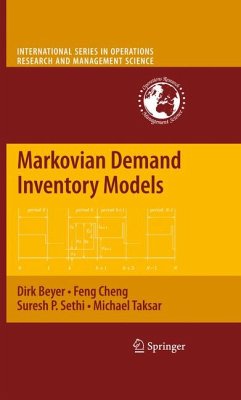
Management of Uncertainty (eBook, PDF)
Theory and Application in the Design of Systems and Organizations
Versandkostenfrei!
Sofort per Download lieferbar
72,95 €
inkl. MwSt.
Weitere Ausgaben:

PAYBACK Punkte
36 °P sammeln!
As I write, the financial systems of the world are collapsing with still no clear indication of what the consequences will be and which measures should be taken to avoid such a crisis in the future. There seems to be agreement though, that the financial instruments introduced in the past few decades entailed far too much complexity and uncertainty and that there was too little regulatory control over the use of these instruments. Management of uncertainty with the aim of achieving self-control is the core concern of this book. It was not written with a focus on financial systems, but many conc...
As I write, the financial systems of the world are collapsing with still no clear indication of what the consequences will be and which measures should be taken to avoid such a crisis in the future. There seems to be agreement though, that the financial instruments introduced in the past few decades entailed far too much complexity and uncertainty and that there was too little regulatory control over the use of these instruments. Management of uncertainty with the aim of achieving self-control is the core concern of this book. It was not written with a focus on financial systems, but many concepts developed in this book are applicable to this field as well. The - neric principles of reducing, maintaining or increasing uncertainties in view of the different contingencies an organization is faced with, the fundamental issue of how much control is possible and who should be in control, and the question of how much and what kind of regulation is necessary with the overall aim of finding an appropriate balance between system stability and flexibility are at the centre of heated debates on the future of finance.
Dieser Download kann aus rechtlichen Gründen nur mit Rechnungsadresse in A, B, BG, CY, CZ, D, DK, EW, E, FIN, F, GR, HR, H, IRL, I, LT, L, LR, M, NL, PL, P, R, S, SLO, SK ausgeliefert werden.












